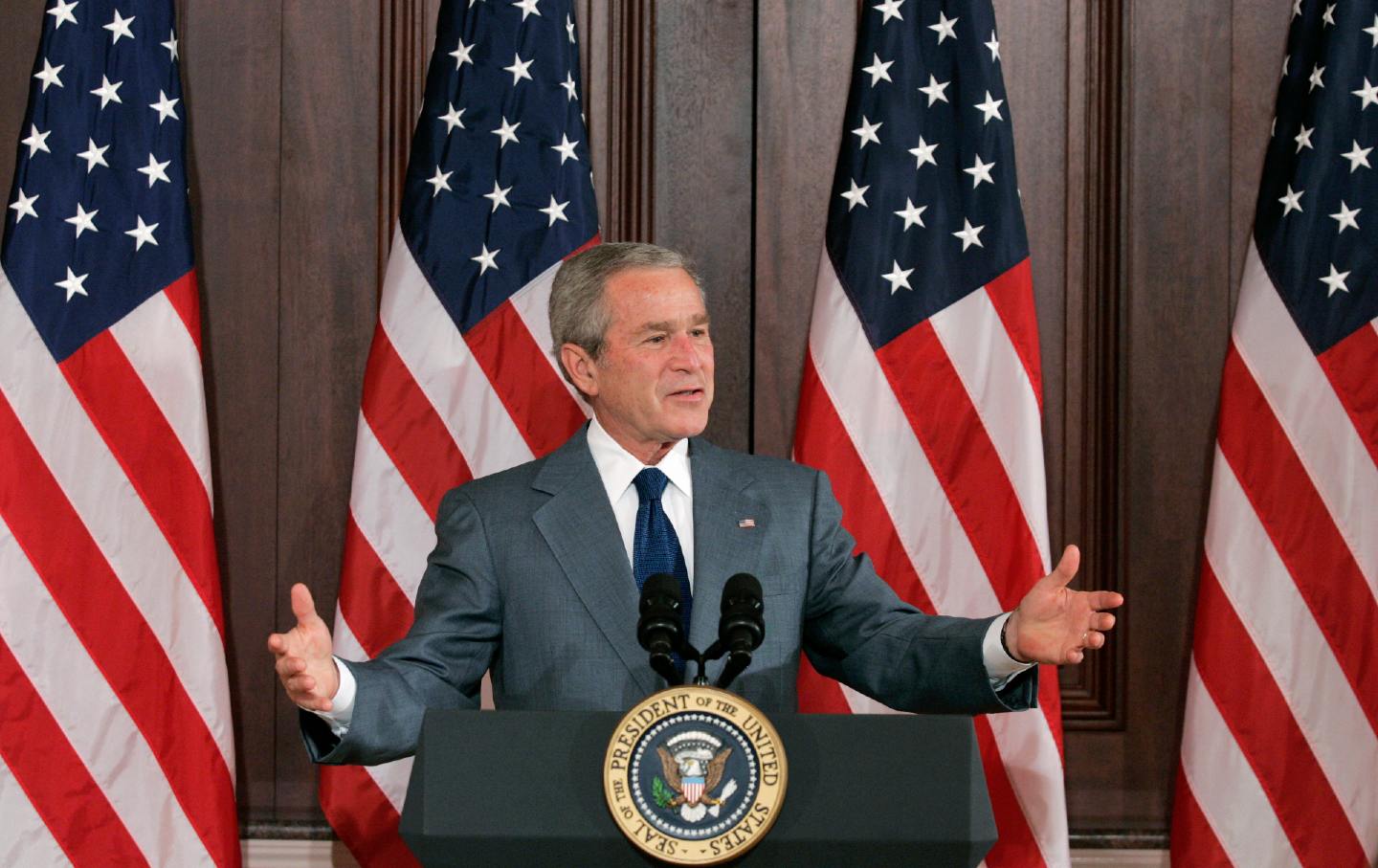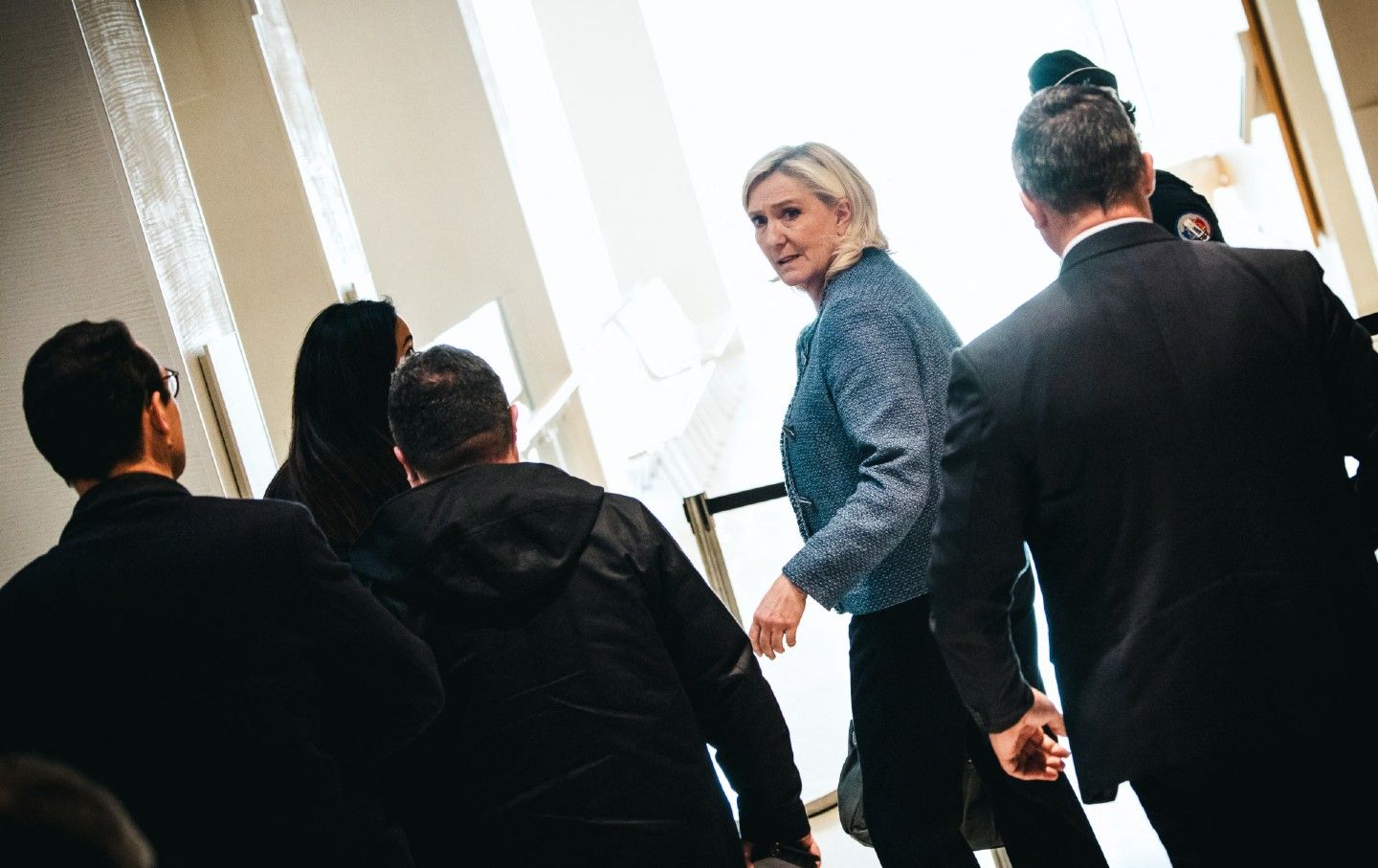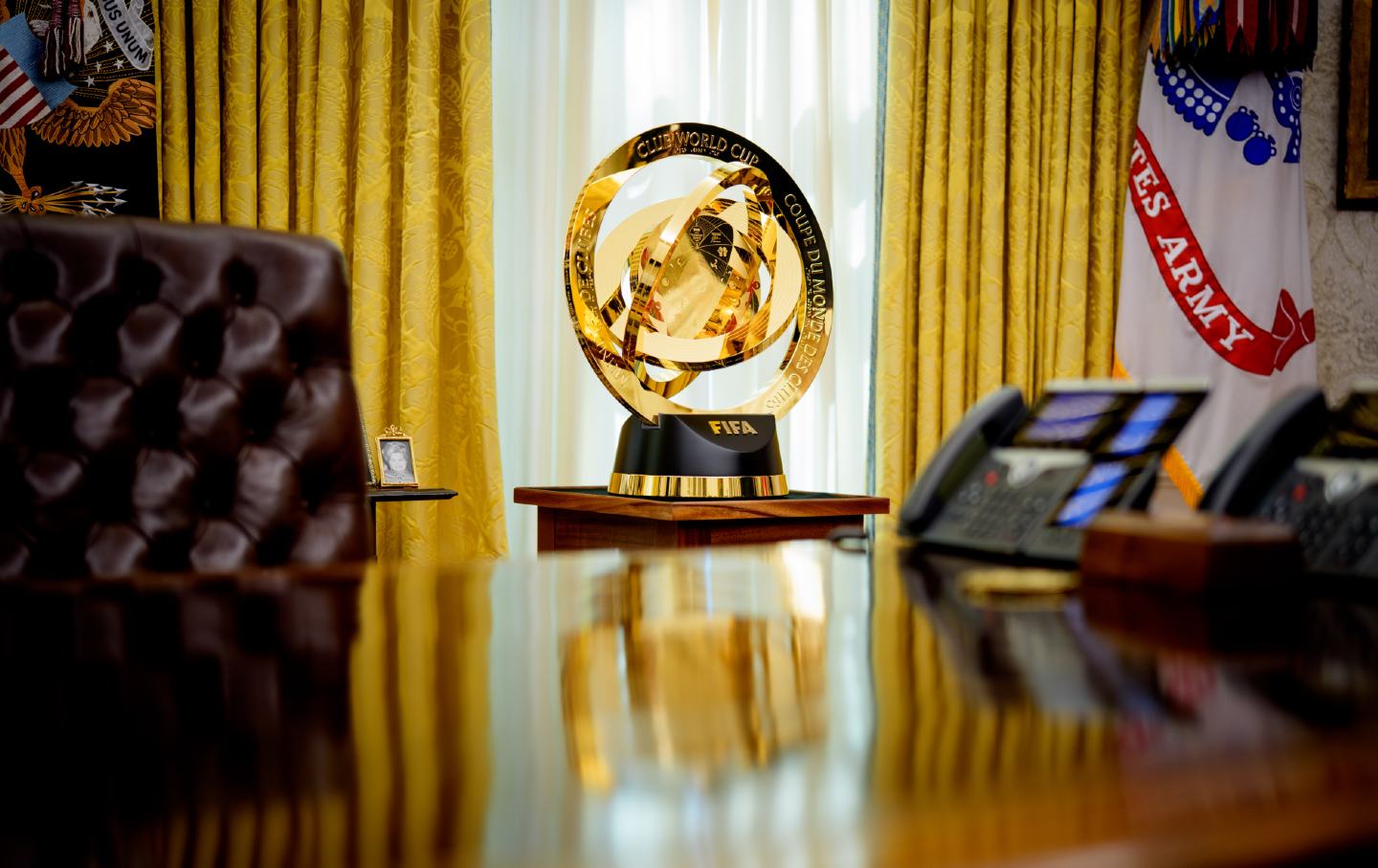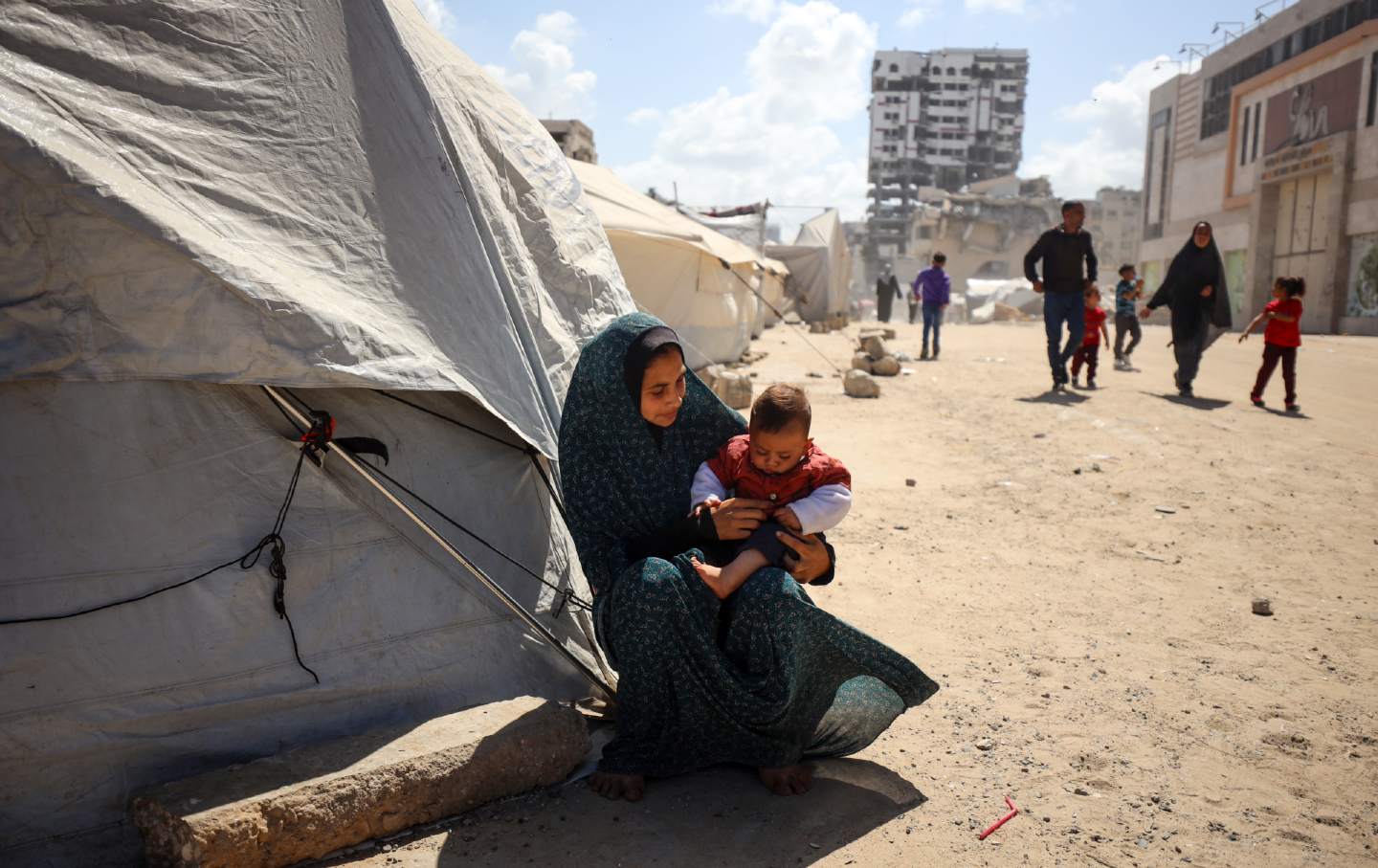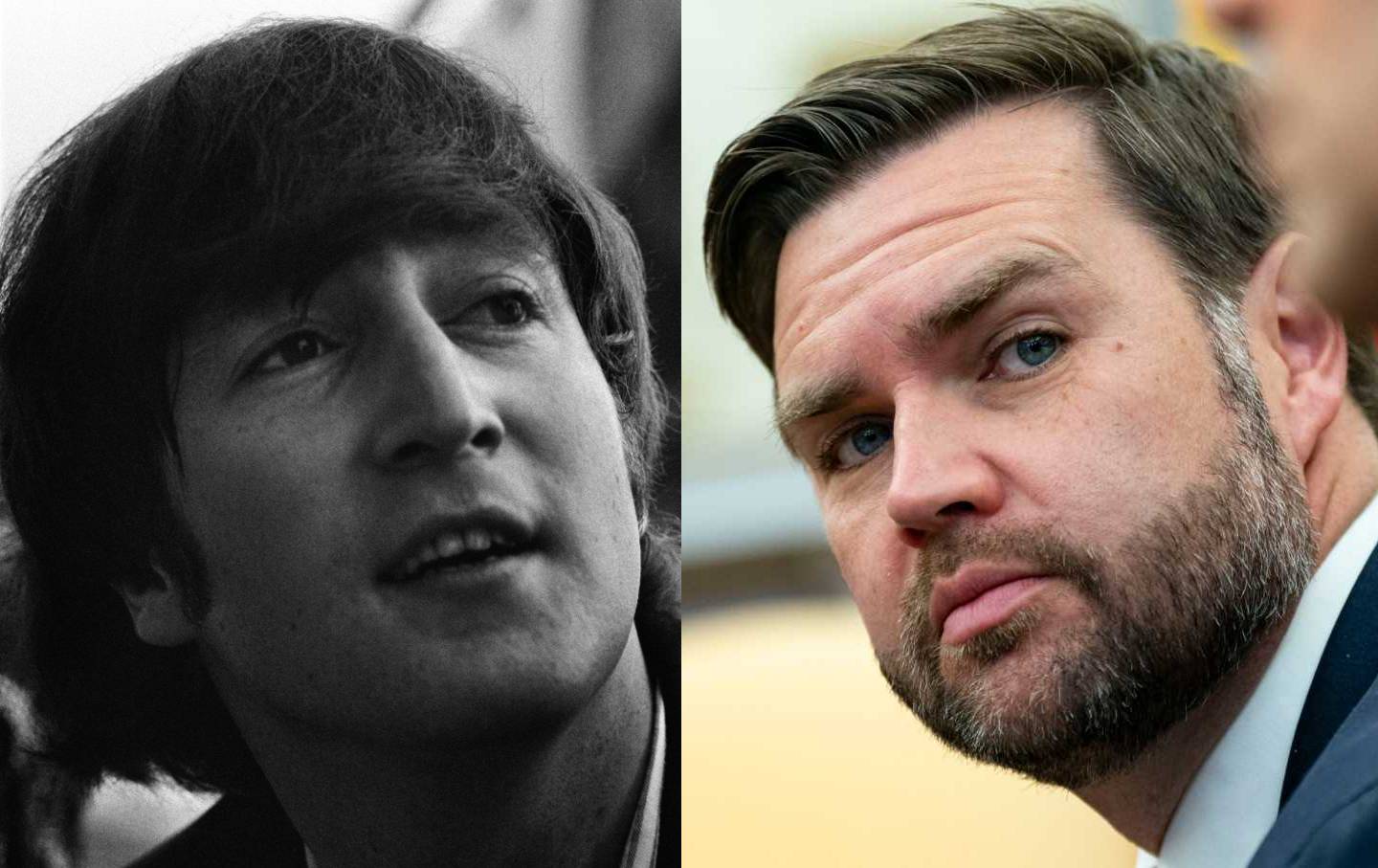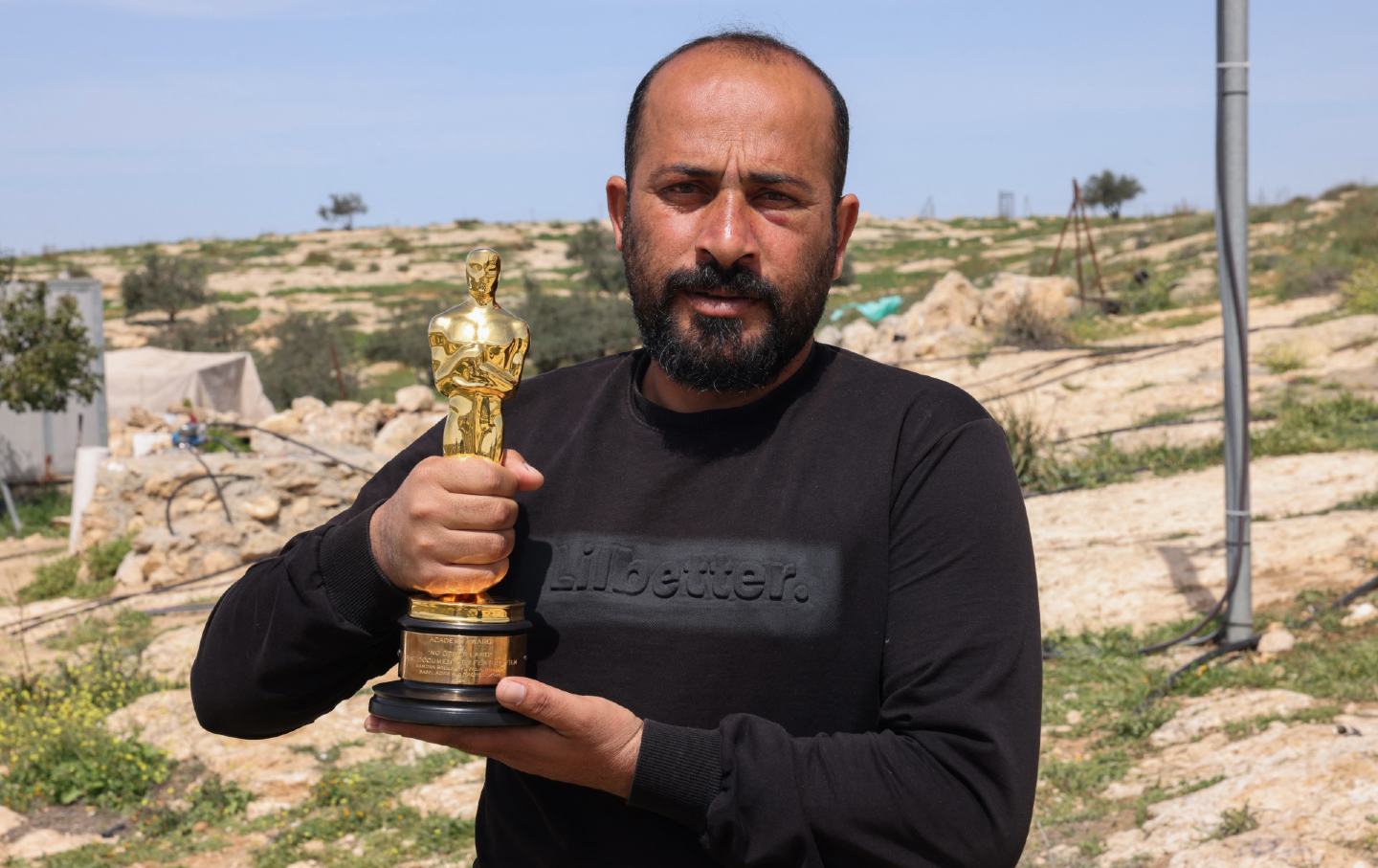What Israel’s Genocide Did to One Boy
Yaseen Al Ghalban was an ordinary child living a happy life. Then the genocide changed everything.
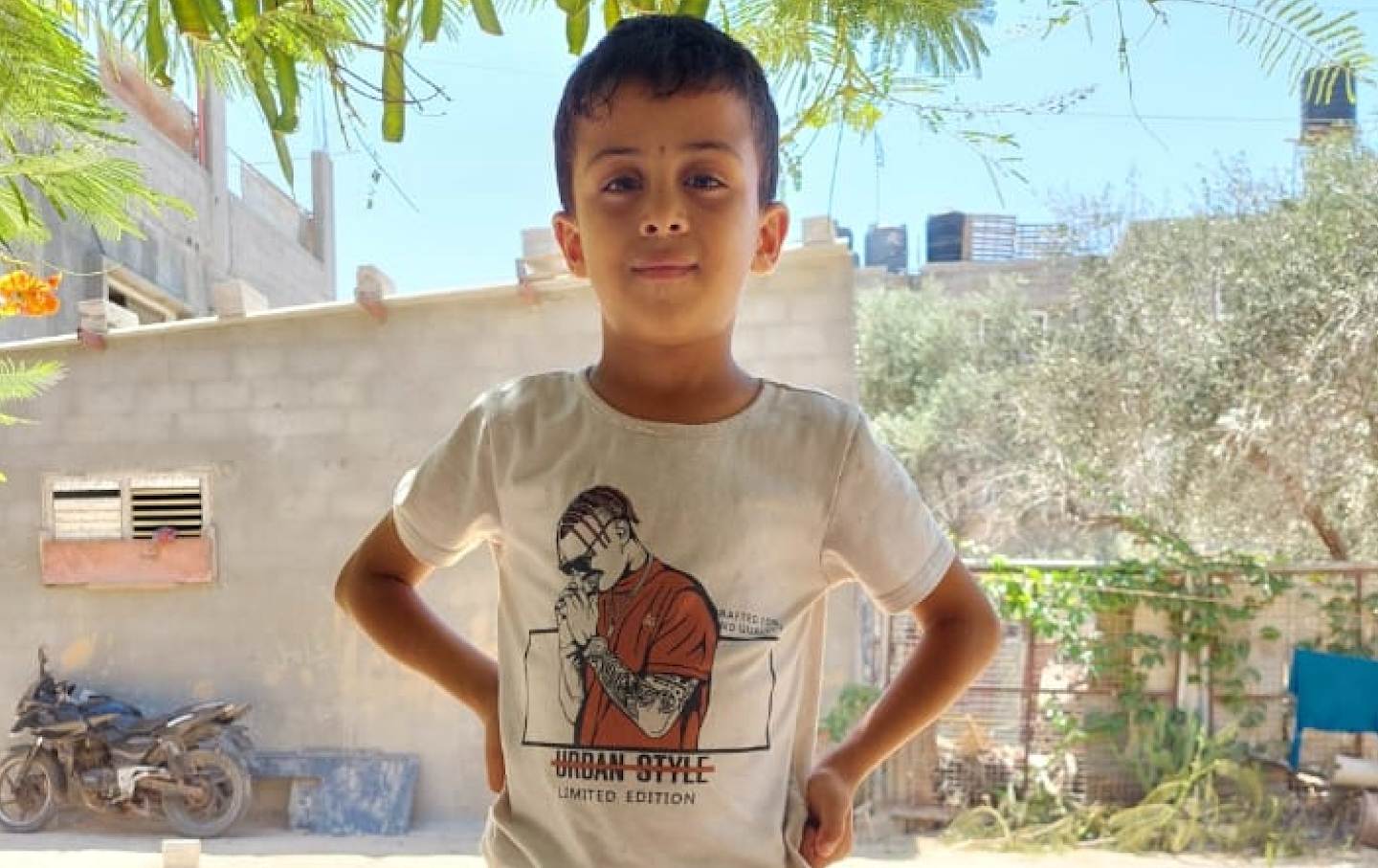
Yaseen Al Ghalban, before he lost his legs.
(Courtesy of the Al Ghalban family)Khan Younis, Gaza—On a cloudy February day, surrounded by rubble where buildings and homes once stood, 11-year-old Yaseen Al Ghalban sat in his wheelchair. The stench of blood and death—now a permanent feature of the landscape since Israel’s genocide began—hung in the air.
Yaseen’s tent was built of flimsy nylon and ragged cloth, inadequate for the harsh winter. It was soaked with rain each time a storm moved through. Yaseen, wearing light clothing, shivered with pale skin and trembling hands. “My dream is to play again with my friends who I was playing football with before the war,” he told me.
But for that to happen, Yaseen will need prosthetic limbs. Both of his legs had to be amputated after he ran over an unexploded Israeli bomb in December 2024—a year after an air strike killed his father and his brother.
The ongoing genocide has taken an immeasurable toll on children like Yaseen. In January, the United Nations estimated that around 25,000 children in Gaza had been injured since October 2023. At least 17,400 are thought to have been killed.
Now, as Israel resumes its large-scale massacres in Gaza, Yaseen and the rest of the region’s children are facing renewed danger.
Before the war began, Yaseen aspired to become a famous football player. “I miss my previous days when I was going to a tutor who was giving me lessons,” he told me. “I miss the days when I was doing my homework at home. I miss my days when I was going to the club and playing football.” He recalled spending time swimming with his father, who used to take him to training.
But the war changed all that. “On the first day of the war, I was preparing myself to go to school. I felt horrified,” Yaseen said. “We thought it was thunder. Then, we looked from the window to see that bombs were everywhere. We chose to stay at home.” During the first weeks, the sound of nearby bombs terrified him, forcing him to close his ears and run toward his mother and siblings.
The family’s first displacement happened in the first two weeks of the war. “One night, I was sitting in one room with my parents and siblings,” Yaseen said. “We couldn’t bear it. The shrapnel was everywhere. We had to wait until morning to leave our home, knowing there was no safe place.” His parents quickly stuffed some documents, like birth certificates, into a small bag.
“It was one of the most horrifying nights we faced. We didn’t sleep till morning, and when the bombs stopped a bit, my father told my mother, ‘Put some food and a piece of cloth out for each one of us. We will return after that,’” Yaseen recalled. But his heart sank at the thought of leaving his books, pencils, and toys behind. “I knew we wouldn’t return for them.”
They spent several days in the Khan Younis municipality. “We were sleeping on the ground as we didn’t take blankets or mattresses,” Yaseen said. “We were eating only a piece of bread with cheese every day. My siblings and I woke up early each morning to help fill our water bottles. We would carry two or three bottles, standing in long lines to fill them from the truck that came to my [former] school—Ma’an Primary School. The sounds of drones and bombs were always overhead.”
As he trudged to his old school for water, memories flooded back. He remembered carrying his backpack joyfully on his way to lessons with his brothers. He remembered them holding hands as they made the journey. Now, they held empty water bottles with desperation.
The school was converted into a shelter for displaced people, and Yaseen’s family went to stay there. On December 4, 2023, a torrent of fear swept through the building.
“People around us started running fearfully in the streets. We were all jam-packed in the classrooms, crying,” Yaseen’s mother, Fadwa, recalled. “Despite the chaos, Yaseen, along with his siblings, tried to bring joy by singing and laughing, attempting to erase the fear and pain.”
The following morning changed everything. “As we walked through the school, artillery shells began to fall,” Fadwa recalled. “It was at that moment that my husband and my son Ali, 13 years old, got martyred.” The horror unfolded before Yaseen’s eyes. Mohammad, his 12-year-old brother, lost one leg, and Yaseen cried out for his father and brothers.
“We stayed in my sister’s home for a day. Then, I went to Nasser hospital to bury my husband and son Ali,” Fadwa explained. After that, they fled to Rafah without anything—their luggage and belongings having been stolen. They sought refuge in a place belonging to strangers for a month before setting up a tent in a displacement camp. “We stayed there without anything. Till mid-January, my children were sleeping on the ground without blankets or anything to warm them,” Fadwa said.
Eventually, some charities helped by providing minimal assistance. Fadwa reflected, “We didn’t have any choice but to be steadfast and hope for something great in the future.” They returned to Khan Younis, but life remained harsh. Yaseen and his siblings walked long distances to fill bottles of water, with no gas for cooking.
On December 4, 2024, the family discovered that their home had been completely destroyed. “Everything was full of dust. We began to clean the place to set up a tent,” Fadwa recounted. “Yaseen stood on the rubble and started searching for things. He found his certificates and started laughing.” However, tragedy struck once more. While Yaseen was playing, he accidentally ran into an unexploded bomb.
“I was 100 meters away from him,” Fadwa told me. “The first thing I did was call for Yaseen, searching desperately for him with my children. Then we spent an hour and a half looking for transportation to get him to the hospital.”
Yaseen lost one leg at the scene of the incident, and the other was amputated at the hospital. “Yaseen needed many surgeries, eight blood units and four plasma units. He lived after that, Alhamdulillah,” Fadwa said.
Popular
“swipe left below to view more authors”Swipe →He spent five months in the hospital suffering from deformation and needing further treatment. Fadwa had to buy expensive medicine during those three months, struggling to provide even basic necessities.
“During my time in the hospital with Yaseen and my children, there was no meat, no eggs. I couldn’t find any animal protein. No fruits or vegetables to feed them.” On Eid Al Adha, Fadwa recalls, “There was a person who slaughtered a sheep near the hospital, and my child Yaseen felt happy when he saw that. I was forced to buy him meat, which cost 300 ILS for one kilo.”
Now, the family is once again homeless. “We are in a tent now on the rubble of our home without a shelter. We don’t care about anything. We don’t want this life anymore. We wish we could die!” said Fadwa, her voice filled with heartbreak.
Yaseen is deeply traumatized by his losses. Fadwa told me that it’s hard for him to watch other children playing.
“Yesterday, Yaseen started crying and beating himself when I asked the other children in the neighborhood to help me clean near the tent because he couldn’t help me,” Fadwa said. “He doesn’t want to go to school, fearing he might be left alone. When I leave, he starts screaming. I try to follow up with him with online lessons. He is also memorizing the Holy Quran at the mosque.”
Throughout all of this pain, Yaseen is still dreaming. “I want to play again with my friends,” he said. “I want to stand on one foot and walk here and there to help my mother and siblings buy whatever they want from the markets. I can’t wear slippers or sneakers to walk and run because I lost my legs. I hope anyone helps me to travel to get treatments and a prosthetic limb.”
“I want all the organizations to help me get my child out for treatment,” Fadwa said. “I’ve been trying to get him out for about 10 months, but all in vain. No one from the World Health Organization or the Red Cross contacted us. All my children are suffering from trauma. My daughter Asmaa doesn’t talk to anyone. Zaina screams whenever someone contacts her. Nuseiba wants to be with me constantly and is fearful. I want to treat Yaseen and rebuild our home. I want to see my children laugh again.”

